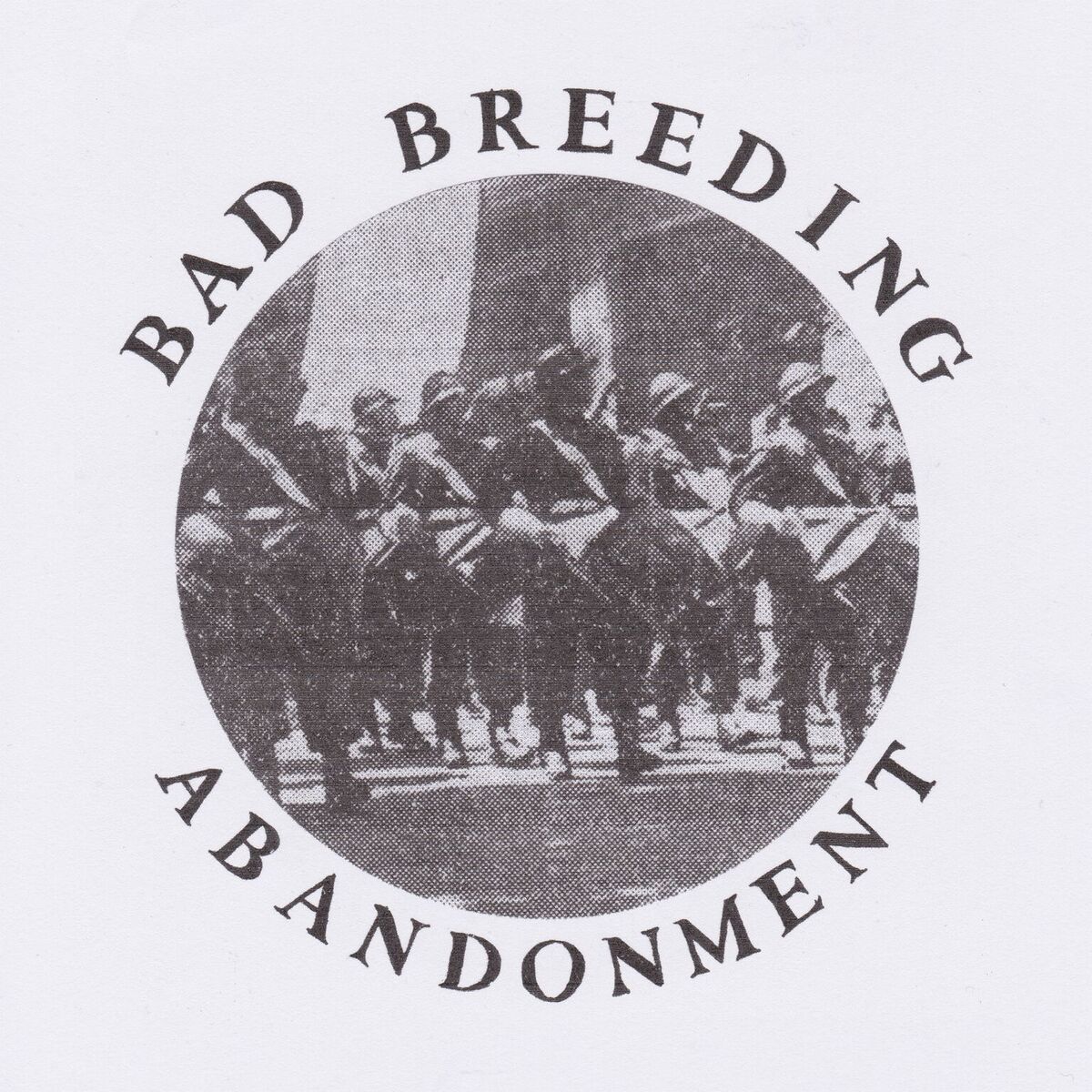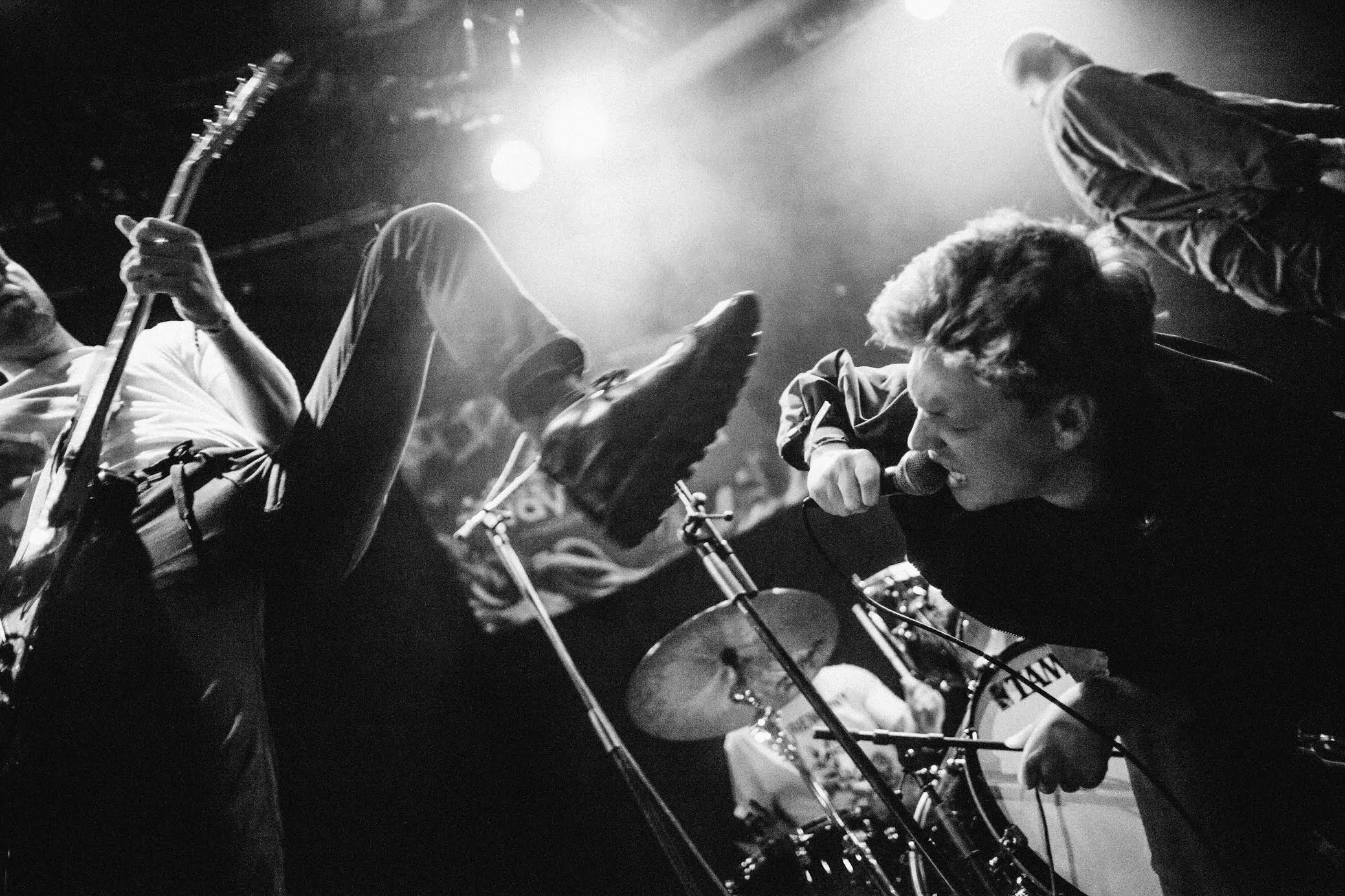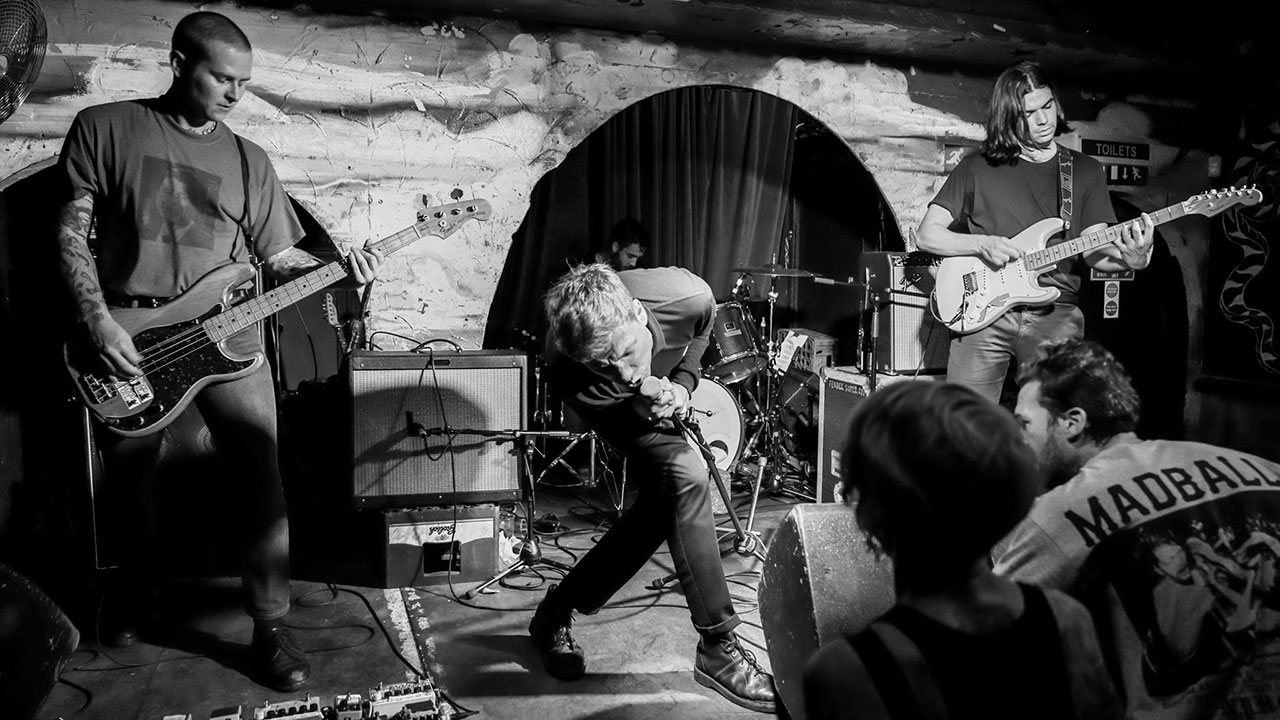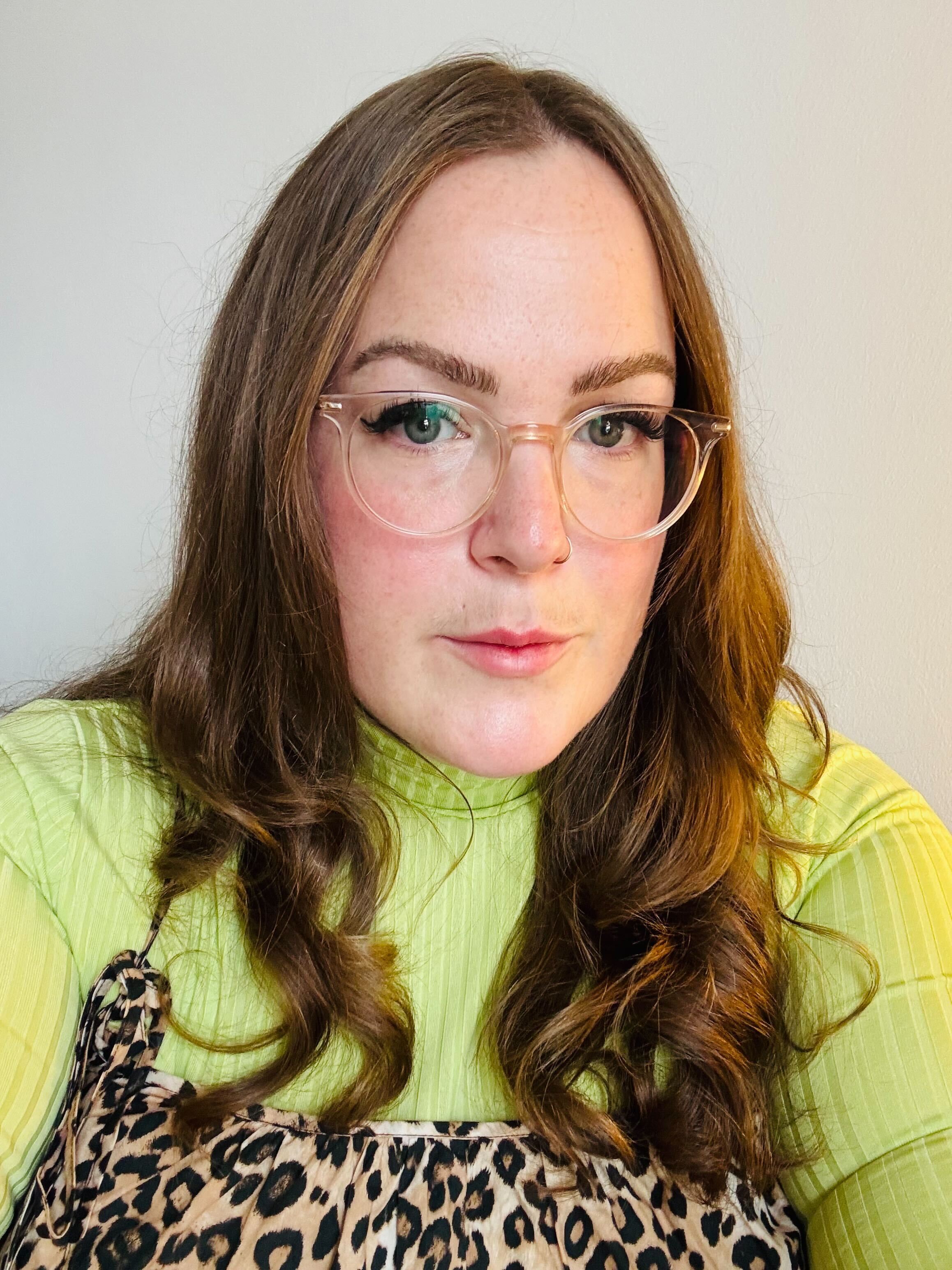The world's screwed, right? At the very least, that's how it can feel for those existing in society's shadowy, forgotten corners. Well, that's where Stevenage anarcho-punks Bad Breeding come in. Since forming in 2013, the band have used both their music and their no-holds-barred live shows to try to engender a sense of community and belonging among all they meet – particularly those feeling left out or left behind by society. Their new EP, Abandonment, is a blistering parcel of white hot fury that takes aim at cross-generation conflict, toxic masculinity, and wilful ignorance in the face of a system which is wholly broken.
Having released new single Psychic Copper last week, vocalist Chris Dodd talks us through the track and what it means to them. You can check the song out below.
Can you tell us a bit more about what Psychic Copper is about?
"It was my way of discussing some of the toxic notions of masculinity that I’ve spent time around in Stevenage, both at work and in social circles too. A lot of the violent and aggressive posturing that comes as an accepted form of masculine identity here has been prevalent throughout my time living in the town. In some ways I’ve been complicit in its portrayal too. Lyrically, I was looking at some of the failures in struggling for identity in a community that has often been driven by fronting up this noxious image of steel and fortitude."

1) Abandonment
2) Dehumanised
3) Psychic Copper
4) Complicit
What drew you to the issues you cover on the song? Why did you feel it was important to tackle them now?
"I wrote the lyrics a while back when we initially just had the drum patterns as a demo. The original idea came from reading a section of one of Robert Bly’s works and thinking about learned behaviours. It sort of led me to think about the acceptance of particular elements of masculine identity in Stevenage and how so many poisonous stereotypes have prospered throughout my childhood and early adulthood.
"I don’t think there was a particular focus on deciding to say something at this very moment other than being frustrated at seeing the same scenarios playing out now as I did when I was younger. Just increasingly becoming tired of the same expressions of anger and violence that are the byproducts of an increasingly harmful social construct."
What's the one thing you'd want people to take away from the song?
"I’d be pleased if somebody at least thought about how we can start to redefine masculinity to support better mental health and prevent the violent destruction of communities, families and ultimately people’s welfare."

You're playing a headline show on International Workers' Day in aid of People For People. Why is IWD important to you guys, and can you tell us more about the organisation?
"I think it means varying things depending on how far to the left you find yourself. We all work manual trades in varying degrees so it’s a day that is recognised as being important for everyone in the band. For us it presents a day to celebrate the working elements of our local community, which has largely suffered on the end of punitive austerity measures and outward displays of disdain from the current government and a good few before it.
"People For People acts as both a community group and online forum to help provide relief and assistance for marginalised sections of the town. It’s predominantly operated from a Facebook page where people can offer donations, trade skills, time or whatever else might be useful to people who don’t always have access to some of the essentials they may need. In a way it’s a perfect example of how a community has pulled together collectively to help meet the implications of austerity at a local level. It sort of prizes collective action, offering up a platform that allows people to donate, organise and provide each other with varying forms of support."
How do you think music can help to change the current political climate?
"I think you have to consider a lot of other elements like social, economic, media and class drivers if you’re thinking about broader political change, but I’d argue that art certainly has the potential to encourage dialogue and provide an entry point for conversation into a lot of those things. One of the most productive examples I’ve found is looking at how much of an impact putting on shows can have at a local level. There are countless people who put on shows to bring groups of people together, not only for the sake of putting on an artist but to also encourage dialogue around important topics – race, class, identity and many other things. Not only do they serve to help further conversations between people, but they help to fundraise and also provide more inclusive spaces for all of this to take place in. I think that’s the most positive political impact I’ve experienced, especially when touring Europe – seeing people collectively working together to give each other a voice, both artistically and more generally from a social perspective too."
Bad Breeding's new EP, Abandonment, will be released on April 27th via One Little Indian Records

